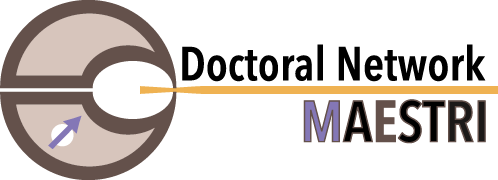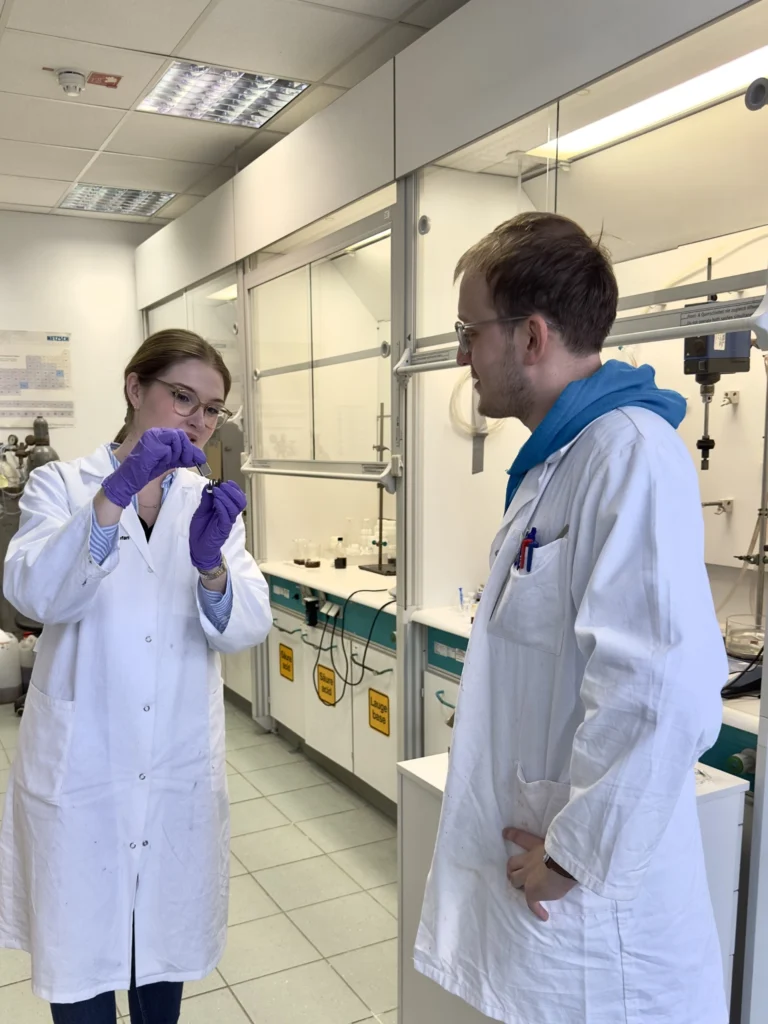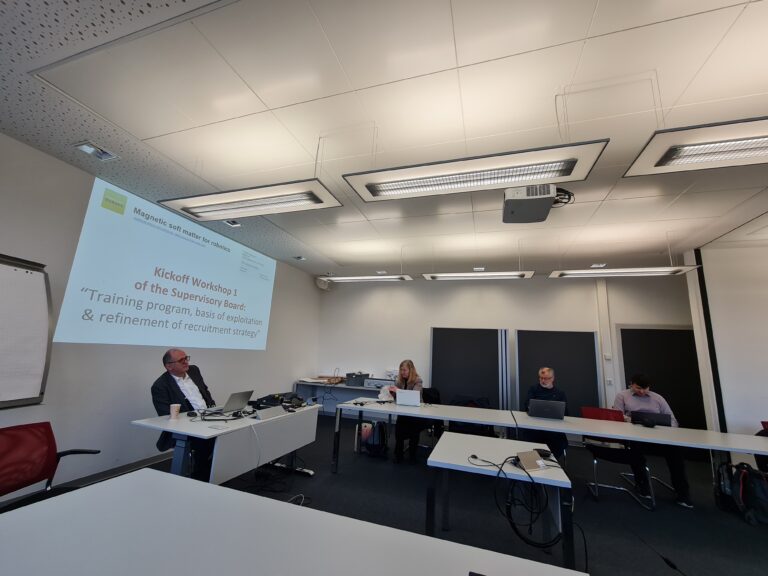The first training school of the Doctoral Network MAESTRI took place at Christian-Albrechts-Universität zu Kiel (CAU) from March 3rd to 7th, 2025. This event marked the official kickoff of the MAESTRI program, designed to address the growing need for training a new generation of experts in the emerging field of soft robotics. The program focuses on controlling material properties magnetoactive elastomers (MAE) through magnetic fields, leading to advancements in soft robotics. The research program includes synthesis, testing and robotic implementation of elastomers and complementary liquids embedded with micro- and nanometer-sized magnetic particles. Given the interdisciplinary nature of the challenges and tasks in this domain, the consortium consists of seven academic and two industrial beneficiaries from the fields of biology, materials science, physics, and robotic engineering.
Overview of the Training School

This training school centered on the Scientific Training Workshop: “Bioinspiration and Biomimetics”, featuring by professors Prof. Stanislav Gorb (CAU Kiel) and Prof. Mikhail Chamonine (Ostbayerische Technische Hochschule (OTH) Regensburg). Ten doctoral candidates from Scuola Superiore Sant’Anna (Italy), University of Southern Denmark (Denmark), OTH Regensburg (Germany), Jožef Stefan Institute (Slovenia), University of Ljubljana (Slovenia), University of Vienna (Austria), CAU Kiel (Germany), Prensilia s.r.l. (Italy) and Wegard GmbH (Germany) participated in the workshop, engaging in a variety of activities aimed at fostering collaboration and expanding their scientific knowledge.
Day 1: Introduction and Project Presentations
The training school commenced with an introduction session where each of the nine doctoral candidates from the MAESTRI network delivered a brief presentation outlining their research objectives and their role in the MAESTRI program. This session provided an opportunity for candidates to familiarize themselves with each other’s work and understand the interdisciplinary nature of the project.
Day 2: Lecture on Biomimetics and Skeleton Gallery Visit
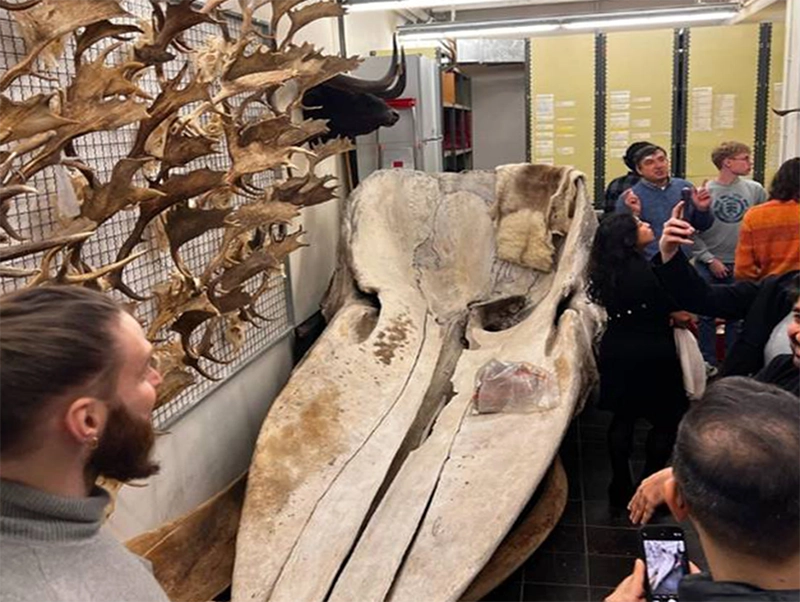
The second day featured a lecture by Prof. Gorb, who presented an overview on biomimetics with a particular emphasis on surface properties. In the afternoon, the participants visited CAU’s skeleton gallery, a unique collection housing over a thousand specimens from various vertebrate species, offering a deeper appreciation of biological structures and their relevance to bioinspired materials. Furthermore, the MAESTRI doctoral candidates continued with networking regarding the cooperation between them.
Day 3: Experimental Workshops on Surface Properties
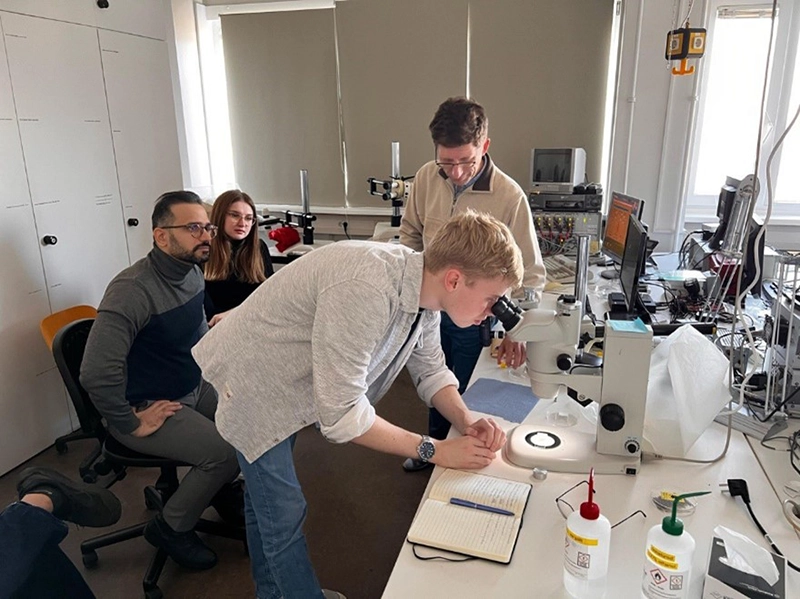
The third day was dedicated to hands-on experimental training. The candidates were introduced into the Contact Angle Measurement System and learned methods for measuring surface energy of biological and artificial surfaces. Additionally they learned tribological experimentation for determining adhesion and friction of surfaces using custom made microtribometer. In the afternoon, participants attended an online training session on Intercultural Communication, conducted by Dipl.-Psych. Heike Abt, who provided insights into effective communication across diverse cultural backgrounds.
Day 4: Group Rotation and Botanical Garden Tour
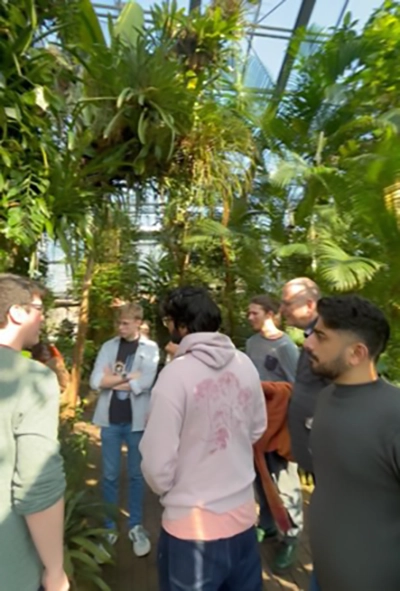
On the fourth day, the group continued experimental work on both setups. The afternoon featured a guided tour of the Botanical Garden, offering a chance to explore nature’s diversity of shapes and surfaces and to discuss their potential for applications in soft robotics. Furthermore, the MAESTRI doctoral candidates continued to work on their career development plans.
Day 5: Online Presentations and Conclusion
The final day of the workshop featured four presentations covering following key topics: (1) Development of multifunctional magnetoactive elastomers; (2) History, technology, and applications of carbonyl iron particles; (3) Wetting on magnetoactive elastomers, and (4) Magnetomechanical coupling and magnetoelectric effect in magnetoactive elastomers. Following a week filled with theoretical insights, practical training, and valuable discussions, the training school concluded in the afternoon.
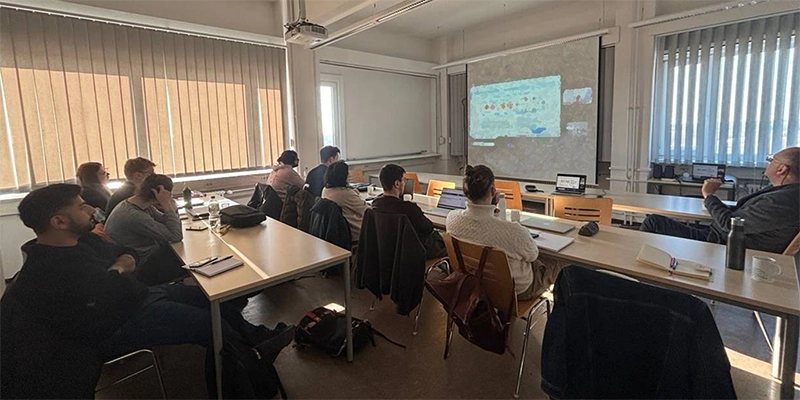
Impact and Conclusion
Throughout the week, the training school provided an excellent environment for the team building as well as an enriching experience for the doctoral candidates, equipping them with essential knowledge and practical skills to advance their research in magnetic soft robotics. The event facilitated interdisciplinary collaboration, helping candidates better understand their roles and responsibilities within the MAESTRI EU project. This successful first training school set the stage for future developments in the program and reinforced the commitment to advancing research in bioinspired soft robotics.
